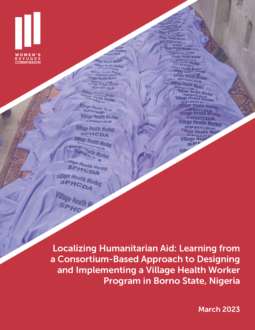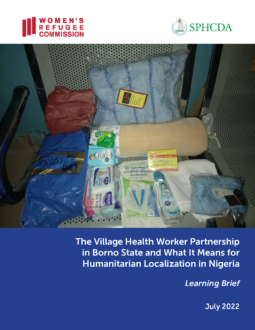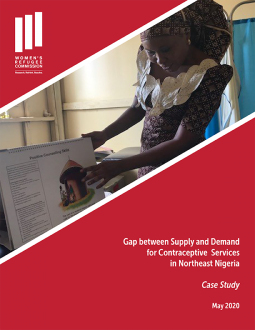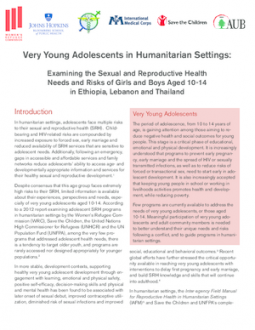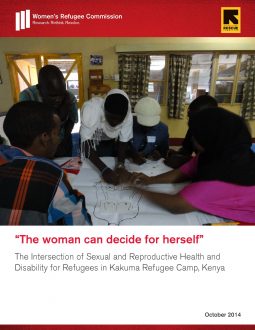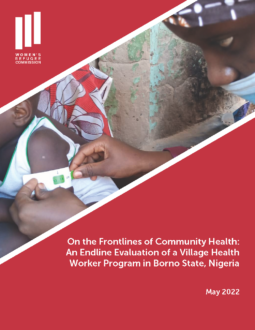
On the Frontlines of Community Health: An Endline Evaluation of a Village Health Worker Program in Borno State, Nigeria
PublishedIn 2017, the Women’s Refugee Commission (WRC) launched the Reproductive, Maternal, Newborn, Child, and Adolescent Health and Nutrition (RMNCAHN) Project, including its cornerstone component, the Village Health Worker (VHW) Program, to address the health crisis arising from the conflict in Borno State in northeast Nigeria. The project adopted a localized approach to strengthen public health systems in the state. Coordinated by WRC, the project brought together five partners: the Borno State Primary Health Care Development Agency, the Mwada-Gana Foundation, M-Space, i+solutions, and a research consultant. The RMNCAHN Project supported the Borno State Primary Health Care Development Agency to recruit, train, and deploy VHWs to improve families’ health-seeking behavior and RMNCAHN practices, while advancing the quality of health care provided at health facilities through complementary interventions.
WRC conducted an endline evaluation to gather information on the effects of the project among households to assess the success of the project for accountability and learning. The evaluation included key informant interviews with senior VHWs; focus group discussions with community members and VHWs; and analysis of program monitoring data. The report shares findings from this evaluation.


